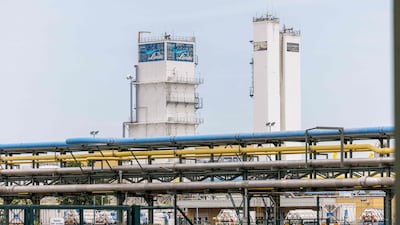Britain has announced it has signed a collaboration agreement to work closely with Germany to underpin the international trade in hydrogen.
In a new partnership, announced on Tuesday, the UK government says it hopes the move will support its net-zero target and bolster energy security.
The countries said they will be working together to speed up the role of low-carbon hydrogen in their energy mix.
“This agreement will underpin the development of this new fuel not just for our respective countries but also for an international trade that could be transformative in our work towards achieving net-zero emissions by 2050,” said Martin Callanan, a junior minister in the government's energy department.
“It is through these partnerships that we can move away from expensive fossil fuels – and in doing so boost our energy security.”
Industry and policymakers are increasingly looking to hydrogen to lower the environmental impact of sectors that have been the hardest to decarbonise and reduce the use of gas but the investment required and the technical challenges are high.
In April last year, Britain pledged to double its hydrogen production to up to 10 gigawatts by 2030, with at least half of it from electrolytic hydrogen.
To that end, the government launched a £240 million ($292 million) net-zero hydrogen fund to support commercial use of new low-carbon hydrogen production projects through the 2020s.
Berlin is expected to provide state aid for about 2.5 gigawatts of electrolysis projects this year and the German government has said it would earmark €700 million ($740 million) for hydrogen research to optimise production methods.
Germany has a domestic electrolysis capacity target of at least 10 gigawatts by 2030.
Britain's announcement comes a week after Prime Minister Rishi Sunak announced he was rolling back on some of the government's green pledges.
Last week, he announced a rewrite of a host of pledges designed to help the country achieve a net-zero carbon emission economy by 2050.
The policy overhaul included delaying the ban on new petrol and diesel cars by five years to 2035.
He watered down the plan to phase out gas boilers by 2035, creating an exemption for a fifth of households to potentially never make the change to alternatives such as heat pumps.


